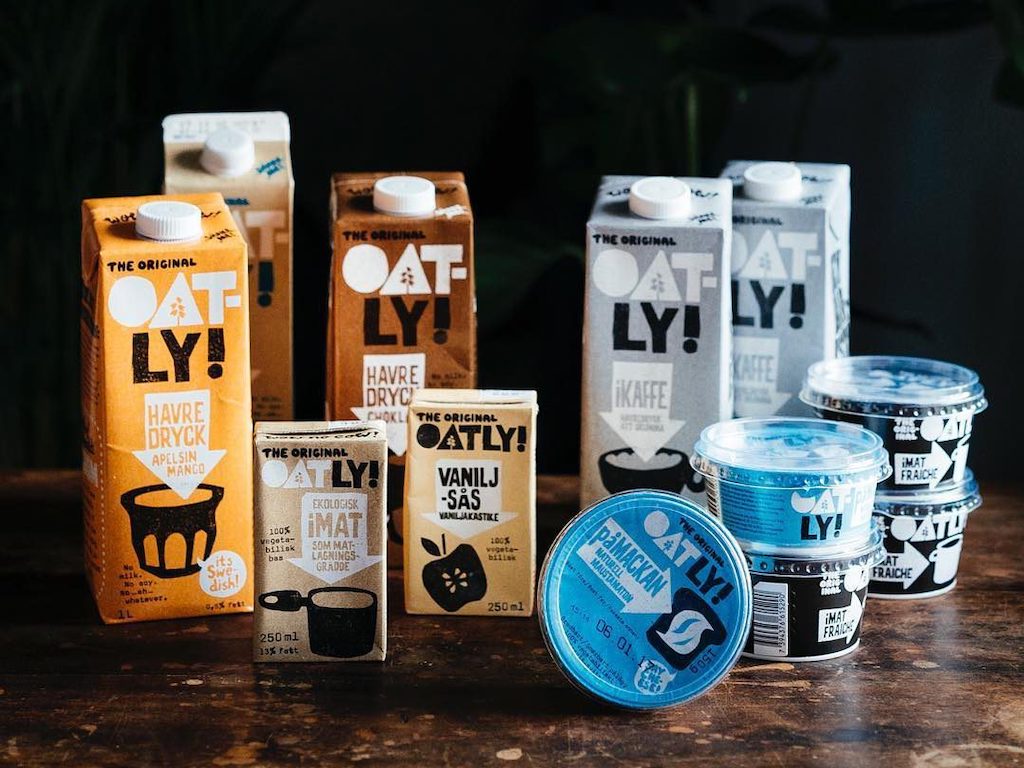Oatly, one of the most famous plant-based milk brands on the market backed by the likes of Oprah and controversial investment firm Blackstone, could be launching an IPO this year. The move to go public would come at a time when oat milk sales have surged to become the second most popular in the fast-growing plant-based milk category and as high-profile startups continue to debut on the raging IPO market.
Oatly could be going public this year, according to a report by CNBC last week, with the news raising investors’ eyebrows about a possible strong debut given its status as a plant-based titan on the same ranks as the world’s first public vegan food tech Beyond Meat. A U.S. IPO could lead to a US$5 billion valuation for the company.
The Swedish startup has seen its sales surge over the past years since its inception in 2017, but its popularity has skyrocketed even more in the wake of the coronavirus, which has accelerated the trend away from dairy even further, putting traditional dairy farms on the brink of an existential crisis. It plans to record US$400 million in sales for 2021, which would mean a doubling of its current figure, and is expected to be profitable this year.
According to SPINS data, sales across the entire oat milk category of which Oatly dominates have grown an astounding 294% in enhanced retail channels and 345% in mainstream retailers over the past year. While Oatly benefits from its first-mover advantage in the oat milk market, major competitors are keen to nab a slice of the pie, with food giants such as Danone and Nesquik and startups like Califia Farms also offering their own lines of oat-based dairy alternatives.
The reports of Oatly’s possible IPO comes shortly after a major global expansion, which saw it land in Singapore for the first time in late 2020, following the coffee giant’s roll out of new plant-based options in eight Asian markets and a landmark nationwide partnership with Starbucks China, alongside fellow plant-based startups OmniFoods and Beyond Meat.
But its success hasn’t been without controversy, with the brand facing major backlash regarding its US$200 million investment it received from deforestation-linked firm Blackstone, whose CEO Steve Schwarzman is a major donor to Donald Trump Super PACs. Former fans of Oatly have taken to social media to campaign for a boycott and to “cancel” the brand.
Critics say that the investment from the leading private equity fund, who is known for its sinister climate record, is in direct contradiction to Oatly’s position as a sustainable brand. Since its founding, a core part of Oatly’s appeal to the younger generation of conscious consumers is its sustainability benefits as a low-carbon, water saving and deforestation-free alternative to traditional dairy.
When asked for a comment at the time, a spokesperson for Oatly defended the deal and told Green Queen: “We chose to partner with Blackstone, the leading player in private equity, because they believe in us and our plant-based mission and because their investment has steered a major stream of capital into our global sustainability efforts.”
“At the same time, their investment in Oatly will set an example and create a ripple effect in the financial community. We have the opportunity to show how companies built around sustainability are not only commercially viable, but also strategic investments for the future.”
Lead image courtesy of Oatly.



